Tropentag 2015
The Importance of a Cow
Fri, 09/18/2015 - 18:19 — Michela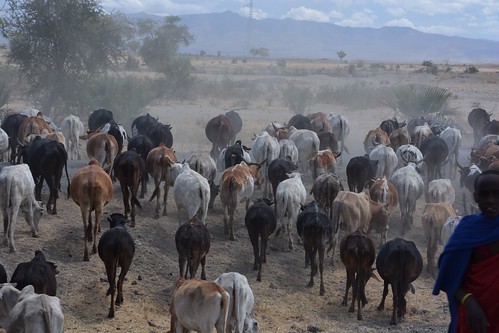 Who has attended the oral session "Cattle diseases in dairy herds in Tanzania” by Silvia Alonso, from the International Livestock Research Institute in Kenya, got maybe the testimony that taking a closer look at the livestock sector in Tanzania – but not only in Tanzania – can bring some evidence about its potential benefits and wide social impacts.
Continue...
Who has attended the oral session "Cattle diseases in dairy herds in Tanzania” by Silvia Alonso, from the International Livestock Research Institute in Kenya, got maybe the testimony that taking a closer look at the livestock sector in Tanzania – but not only in Tanzania – can bring some evidence about its potential benefits and wide social impacts.
Continue...
Reducing Transaction Cost helps Rural Farmers!
Fri, 09/18/2015 - 11:42 — Regie
A poster about "Transaction Costs in Indigenous Vegetable Marketing: Evidence from Rural and Peri-Urban Areas in Kenya" was presented on the second day of the Tropentag 2015 in Berlin. The person behind this valuable topic is from Leibniz Universität Hannover. He is Christopher Kiprono (27) and he is competing for this year's Value Chain poster.
Continue...
Room for Growth
Fri, 09/18/2015 - 11:41 — Suzanne Myada
If there is one thing that all of the presenters at the Tropentag 2015 guided poster session V on "Value Chain Analysis and Marketing II" agree on, it is the truth that there is a lot of room for growth, development and advancement in various stages of the value chain and in marketing of agricultural products in the tropics.
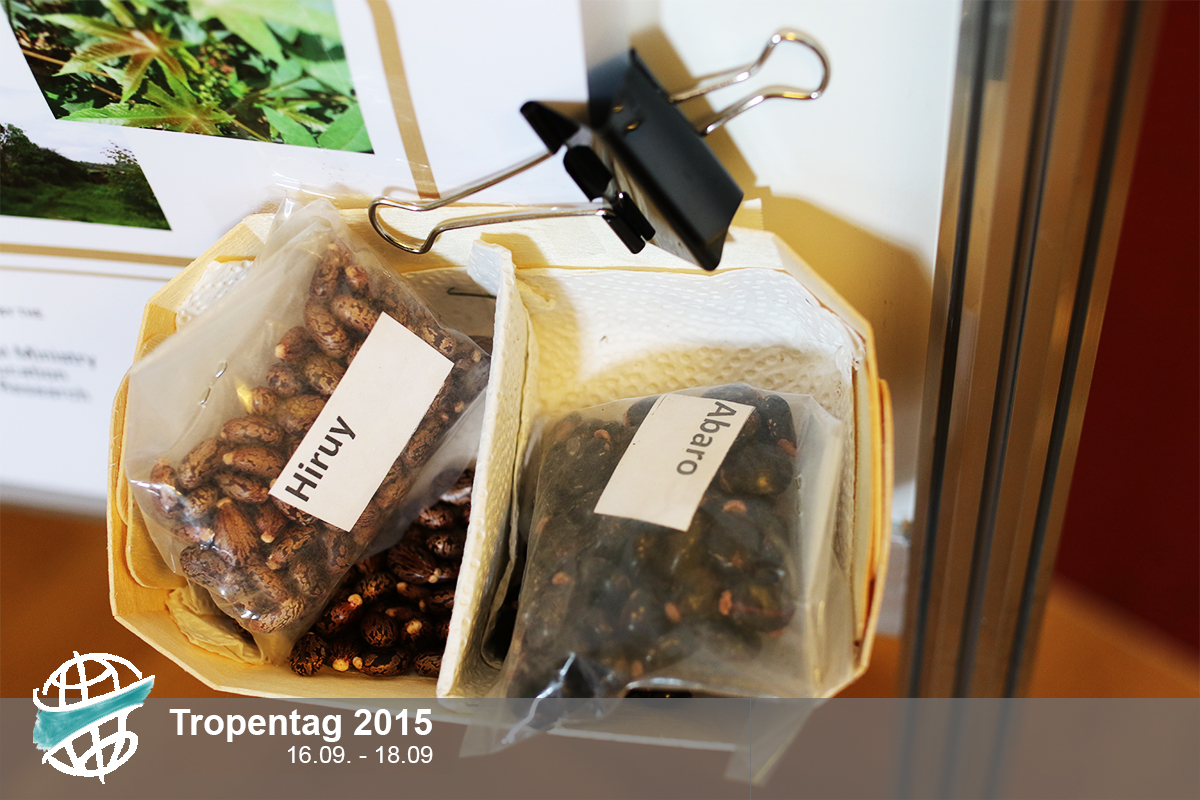 Continue...
Continue...
 Continue...
Continue...
Awarding for Excellence in Agricultural Research
Fri, 09/18/2015 - 11:32 — Rachel Friedman Every year, the Stiftung Fiat Panis awards a number of prizes to PhD and masters students in Germany, Switzerland, and Austria for exemplary theses related to food security. Professor Dr. Hans-Hartwig Ruthenberg, after whom the award is named, was a tropical and subtropical agronomist from Germany. Tropentag hosts the award ceremony, to acknowledge bright young minds, innovation, and excellence. This year’s three recipients demonstrate the interdisciplinarity of the topic of food security, drawing together health and nutrition, climate and weather, and ecology.
Ramona Molitor: “Testing the fetal origins hypothesis: The case of rainfall shocks in India”, Georg-August-Universität Göttingen.
Dominic Meise: “Food Security in Stung Treng, Cambodia - An Empirical Assessment”. Leibniz Universität Hannover
Sarah Fischer: “The baobab (Adansonia digitata L.) in southern Kenya - A study on status, distribution, use, and importance in Taita-Taveta County”, Universität Hohenheim
**Photo coming shortly
Every year, the Stiftung Fiat Panis awards a number of prizes to PhD and masters students in Germany, Switzerland, and Austria for exemplary theses related to food security. Professor Dr. Hans-Hartwig Ruthenberg, after whom the award is named, was a tropical and subtropical agronomist from Germany. Tropentag hosts the award ceremony, to acknowledge bright young minds, innovation, and excellence. This year’s three recipients demonstrate the interdisciplinarity of the topic of food security, drawing together health and nutrition, climate and weather, and ecology.
Ramona Molitor: “Testing the fetal origins hypothesis: The case of rainfall shocks in India”, Georg-August-Universität Göttingen.
Dominic Meise: “Food Security in Stung Treng, Cambodia - An Empirical Assessment”. Leibniz Universität Hannover
Sarah Fischer: “The baobab (Adansonia digitata L.) in southern Kenya - A study on status, distribution, use, and importance in Taita-Taveta County”, Universität Hohenheim
**Photo coming shortly New All-time Record of Tropentag Participants
Fri, 09/18/2015 - 11:28 — Philip Testroet
We just reached over 1000 participants here at Tropentag 2015 in Berlin! This is a new all-time record. Last year in Prague there were 686 participants from 66 countries.
Next year the Tropentag host will be Vienna, Austria.
 See all statistics at ATSAF homepage here
See all statistics at ATSAF homepage here
 See all statistics at ATSAF homepage here
See all statistics at ATSAF homepage here Morning Cuppa: The Agroforestry Behind Our Coffee Breaks
Fri, 09/18/2015 - 09:10 — Rachel Friedman
At conferences, we live for coffee breaks. They are the times when we take a breather from presentation after presentation, the places where we meet new people and reconnect with old colleagues, and of course the spot to refuel. For many of us, that sustenance of choice is coffee, and (at least in my book) chocolate-covered biscuits are the best complement. That’s all pretty standard for organized events. But what makes the coffee breaks at a meeting like Tropentag unique is the array of experts present to relay the story behind the coffee, tea, biscuits, and fruit.
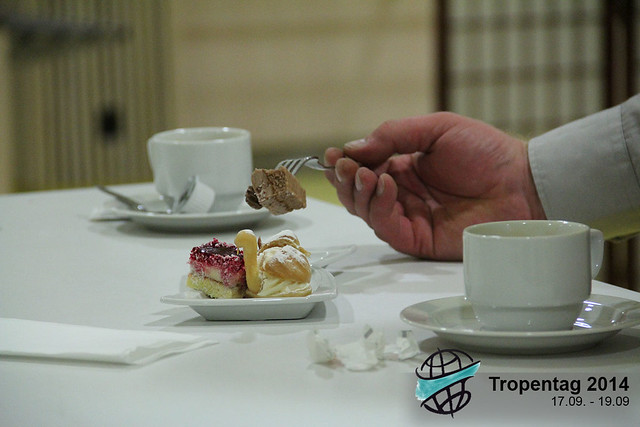 So as I wandered around posters this morning, it struck me that these studies are not merely relevant to those specific geographies or ecosystems and to the local people and communities. There are also ties not very far removed from life outside of our study sites. And yet, we don’t always or even often think about what lies beyond the mug when sipping at a conference venue.
Continue...
So as I wandered around posters this morning, it struck me that these studies are not merely relevant to those specific geographies or ecosystems and to the local people and communities. There are also ties not very far removed from life outside of our study sites. And yet, we don’t always or even often think about what lies beyond the mug when sipping at a conference venue.
Continue...
 So as I wandered around posters this morning, it struck me that these studies are not merely relevant to those specific geographies or ecosystems and to the local people and communities. There are also ties not very far removed from life outside of our study sites. And yet, we don’t always or even often think about what lies beyond the mug when sipping at a conference venue.
Continue...
So as I wandered around posters this morning, it struck me that these studies are not merely relevant to those specific geographies or ecosystems and to the local people and communities. There are also ties not very far removed from life outside of our study sites. And yet, we don’t always or even often think about what lies beyond the mug when sipping at a conference venue.
Continue...
Newly Discovered Biodiversity of Nance (Byrsonima crassifolia) in Yucatán, Mexico
Thu, 09/17/2015 - 18:48 — Philip Testroet
Poster Session 1.3 Biodiversity and ecosystem services
Lisa Stefanie Lautz from Kassel University, Germany, presented her poster about the Mexican local crop ‘Nance’ (Byrsonima crassifolia) today. This plant is cultivated in home gardens and the tropical fruits are eaten and sold on local markets. Byrsonima occurs in Central and South America and is a member of the “acerola” family of Malpighiaceae. In Yucatán it has nearly disappeared from the wild...
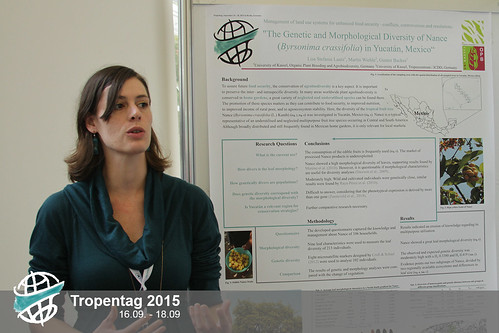 Continue...
Continue...
 Continue...
Continue...
Can Science Truly Solve Conflicts?
Thu, 09/17/2015 - 18:41 — Suzanne Myada
We all agree that science can do a lot of good. Everyday we see and experience its positive impacts in various facets such as healthcare, nutrition and technology. In Tropentag 2015's session tagged "Cooperation and Conflict Management", a wide range of research and studies showing the role of science were presented and discussed.
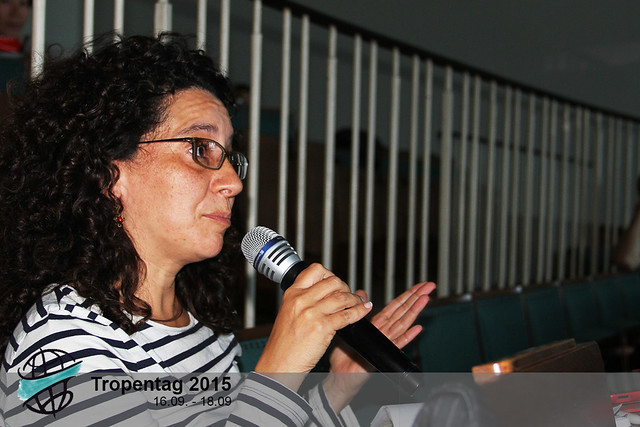 The audience is a big part of all sessions in Tropentag
Continue...
The audience is a big part of all sessions in Tropentag
Continue...
 The audience is a big part of all sessions in Tropentag
Continue...
The audience is a big part of all sessions in Tropentag
Continue...




